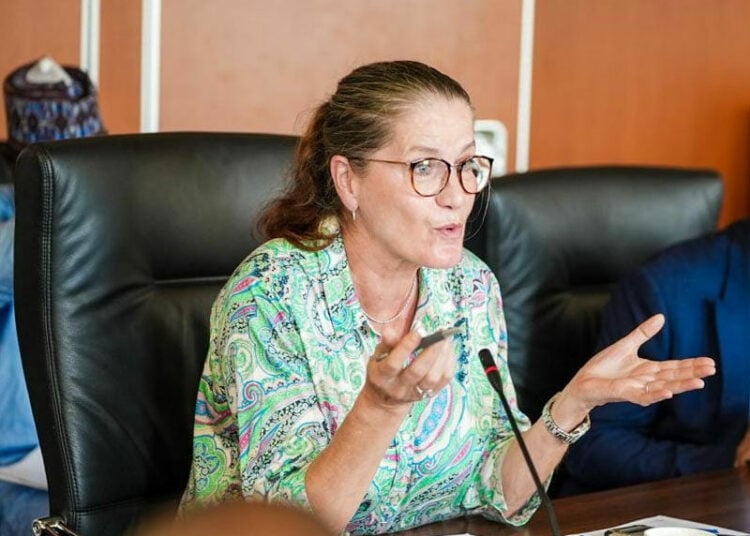The trade volume between Nigeria and Germany has increased by 30 per cent in 2025 and currently stands at 3 billion Euros with more prospects in different sectors for both countries for mutual benefits in the coming years.
The Ambassador of Germany to Nigeria, Annett Gunther made this known during a press conference in Abuja on Thursday, ahead of the German-Nigerian Binational Commission, scheduled for the German capital Berlin in two weeks’ time.
The focus of the Binational Commission will be trade and investment, migration, power, energy, climate change, education, science, culture among others.
The envoy noted that Nigeria is Germany’s second biggest trading partner in Sub-Saharan Africa, stressing that there are over 90 German companies active in Nigeria, indirectly creating about 17,000 jobs in Nigeria even as she assured of more investment especially in the energy and pharmaceutical sector.
Speaking further on energy in Nigeria, Ambassador Gunther said “I would like to highlight that the Presidential Power Initiative which has cooperation with German Energy giant Siemens will add about 7 Gigawatts to Nigeria’s Energy Grid.”
She also said that the German- Nigerian Cooperation in the Gas sectors is billed to eliminate gas flaring and improve Nigeria’s CO2 footprint.
In the face of ongoing conflicts, terrorist threats, social tensions and the impacts of climate change in Nigeria, the envoy said “Germany is supporting the development of resilient state institutions and the strengthening of local communities”.
According to her, key focus areas are in the north east states of Borno, Adamawa and Yobe and in the North West states of Zamfara, Sokoto and Katsina, where initiatives such as reconstruction of schools, health centers, markets, housing, and police stations are improving daily life for local people.
She also stressed the need to address food insecurity facing the country. She said “Nigeria is currently facing significant humanitarian challenges, experiencing one of its most severe crises to date. Around 31 million people are acutely food insecure and approximately 3.5 million children are at risk of severe malnutrition.
“Germany has been a major supporter of humanitarian effort in recent years and continues to play an active role particularly in the areas of protection especially for women and children, food security, water and health services and anticipatory action to mitigate the impact of flooding.
“At the same time, it is crucial that Nigeria assumes greater responsibility for protection, food security, and stability. Humanitarian assistance can provide vital support, but sustainable change arises through local action.
She assured of her country’s commitment to a partnership that promotes shared responsibility and strengthens long-term resilience.





